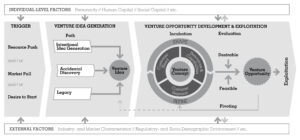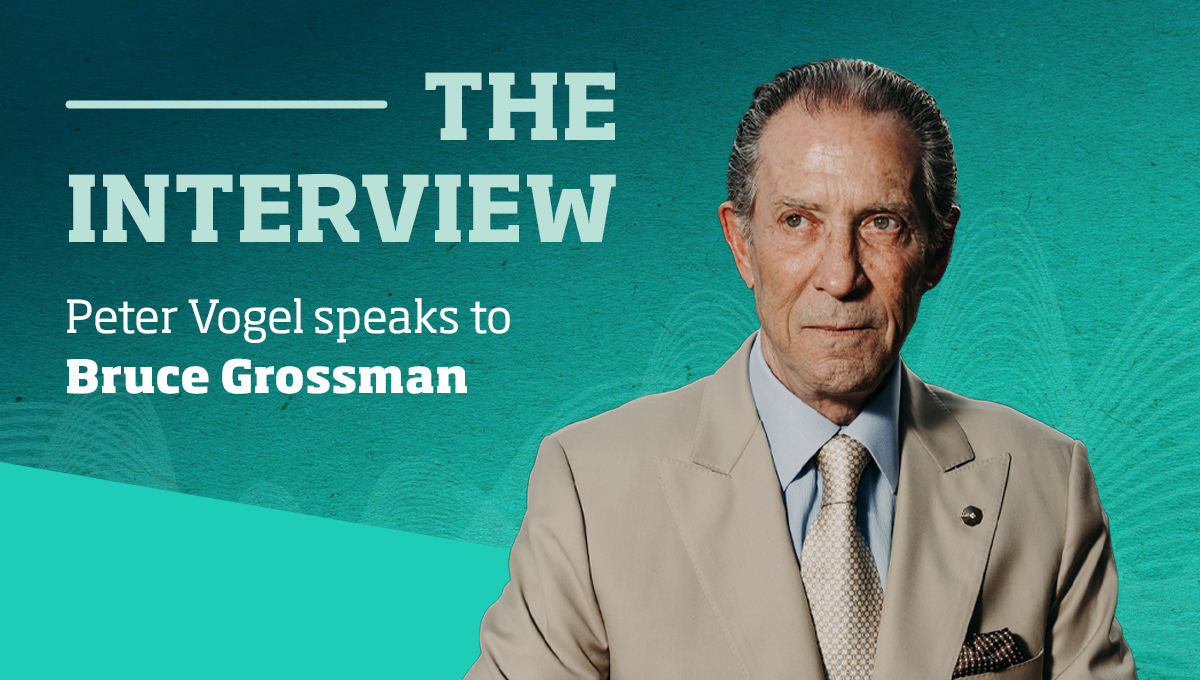
Why business ideas are not the same as business opportunities
“Venture ideas take inspiration. Venture opportunities need perspiration.” Ideas are not the same as opportunities. Starting a new venture requires time and effort. But this seemingly obvious statement has led to confusion among entrepreneurs and academics. Many budding entrepreneurs believe that an idea alone will guarantee them success and wealth.
What they ignore, however, is that it takes time, effort and resources to turn a venture idea into a venture opportunity – and that not every idea will automatically turn into an opportunity. The same holds true for the academic community.
Over the past two decades there has been plenty of research about entrepreneurial opportunities, but relatively little progress was made in our understanding of what an opportunity actually is. What’s more, debates about opportunity have happened largely within the academic community without trying to make them relevant to entrepreneurs, practitioners and teachers. One illustration of this is the long-running theoretical debate about whether opportunities are discovered or created.
I’m an entrepreneur myself and have always felt that these arguments were not relevant to me and my business. Instead of discussing philosophical questions, we should be trying to create meaningful frameworks: tools that help entrepreneurs and academics to understand the potential of an idea to become an actual opportunity.
By borrowing concepts from the creativity and innovation literature, and by differentiating between ideas and opportunities, I created a framework that includes these different literature streams and provides a meaningful basis for academics, entrepreneurs and lecturers alike in that it helps assess when an idea becomes an actual opportunity. Here I’ll explain the broad principles of this framework.

We have all heard a lot about business models and most entrepreneurs have, at least once, used the business model canvas in order to specify the different dimensions of their business. But evidently, no entrepreneur starts with a complete business model in mind when he or she has a first idea in mind. Instead, this idea forms the seed, including some partially-complete and fragmented pieces of information about what such a business model might look like in the future.
It takes a lot of churning and turning, shaping and refining, market research, pivoting and testing on the market in order to find out the right “ingredients” and actually turn this idea into a viable business opportunity.
In the analogy of the seed, it requires the desire, care and nurturing by the gardener in order to turn the seed into a small plant and hopefully a large tree at some point. But besides this effort, it also takes skills and capabilities from his side (individual-level factors) as well as sunlight, water and the right soil (external factors) in order to help the plant grow.
Similarly, a venture idea can only turn into a venture opportunity, if there is a favorable combination of circumstances that make it both desirable and feasible for the entrepreneur to exploit a venture concept and to introduce a potentially value-adding offering into the marketplace. While the exploitation of one business may be an opportunity for one entrepreneur, another might not find it all that interesting, hence he or she does not see it as an opportunity.
So when you have just come up with an idea and think about starting a business based on it, you should remember the following:
Be open and share: learn, unlearn and relearn
Venture ideas are not venture opportunities. An idea is rarely worth anything, whereas an opportunity is based on a more elaborate concept of a potential future venture. So make sure to test your idea with your environment in order to fill in the missing gaps and get a feeling for market receptiveness. If necessary, make changes or be prepared to dump the idea altogether.
Be patient and persistent
It takes time, effort and resources to transform an idea into what may hopefully become an opportunity. Be prepared to put in a lot of time and effort in order to take this idea forward and be prepared for the ups and downs of the entrepreneurial rollercoaster. I’ve been there myself several times, as you read in a reflective post I once wrote on “href=”https://www.linkedin.com/pulse/downs-ups-entrepreneurship-critical-self-reflection-peter-vogel?trk=prof-post”>LinkedIn
Take advantage of your human and social capital
Max Gladwell’s book “Outliers” states that it takes 10’000 hours in order to become an expert in something. Make sure to take advantage of whatever skills and experiences you have gained so far. Research has shown that prior experience significantly increases the odds of startup survival and performance. Also make sure to leverage the network contacts you have. There’s no better way to enter the market than through contacts.
Peter Vogel is professor of family business and entrepreneurship at IMD Business School in Lausanne, Switzerland. He is also a renowned technology entrepreneur, startup trainer and author of several books and articles. Peter’s background is in entrepreneurship, innovation management, and engineering. Find Peter on www.petervogel.org or follow him on Twitter @pevogel.
Reference to original article:
Vogel, P. (2016), From Venture Idea to Venture Opportunity. Entrepreneurship Theory and Practice: http://onlinelibrary.wiley.com/doi/10.1111/etap.12234/full
Research Information & Knowledge Hub for additional information on IMD publications

Regional developers have tried and failed to emulate Silicon Valley’s VC-driven model for innovation. Detroit Entrepreneurship is following an alternative route.

How a private equity-backed corporate carve-out created a successful, sustainable consulting powerhouse by Benoit Leleux
The case examines the entrepreneur-led carve out and buyout of dss+, DuPont’s safety and sustainability consulting division, by Gyrus Capital and dss+ management team. dss+ (formerly “DuPont Sustainable Solutions”) played a pivotal role in high-ri...
This study investigates whether male and female entrepreneurs exhibit systematic differences in the customer learning actions they pursue, and how those actions convert to venture performance. Drawing from a dyadic sample of founders and startup a...
BARCELONA, JANUARY 2023. What started in 2016 as a humble entrepreneurial attempt to contribute to a more sustainable future had turned into a solid eyewear brand present in major Western markets. François van den Abeele was even more excited by t...

Explore top books, websites, and podcasts recommended by IMD expert Jim Pulcrano for anyone venturing into or exploring venture capital, from entrepreneurs to investors.

Bruce Grossman shares his family’s journey from mining to building Arca Continental, Latin America's second-largest Coca-Cola bottler, and their commitment to legacy and impact.
When the dotcom bubble burst in March 2000, this did not stop the world from going digital, but it did poke holes in the concept of trust, especially in the digital world. David Goldenberg, a Belgian entrepreneur with extensive experience in manag...

Family businesses hold a unique place in the economic and social landscape. They represent not just entrepreneurship but also heritage, values and a legacy passed down through generations.

Family businesses have long been the backbone of the global economy, contributing significantly to employment, innovation, and economic resilience. As we approach 2025 and beyond, family businesses must adapt to a range of emerging trends to stay ...
in I by IMD
Research Information & Knowledge Hub for additional information on IMD publications
Research Information & Knowledge Hub for additional information on IMD publications
Case reference: IMD-7-2639 ©2025
Research Information & Knowledge Hub for additional information on IMD publications
in Entrepreneurship Theory and Practice 14 February 2025, ePub before print, https://doi.org/10.1177/10422587241311119
Research Information & Knowledge Hub for additional information on IMD publications
Research Information & Knowledge Hub for additional information on IMD publications
Research Information & Knowledge Hub for additional information on IMD publications
Research Information & Knowledge Hub for additional information on IMD publications
Case reference: IMD-7-2611 ©2024
Research Information & Knowledge Hub for additional information on IMD publications
Research Information & Knowledge Hub for additional information on IMD publications
Research Information & Knowledge Hub for additional information on IMD publications

